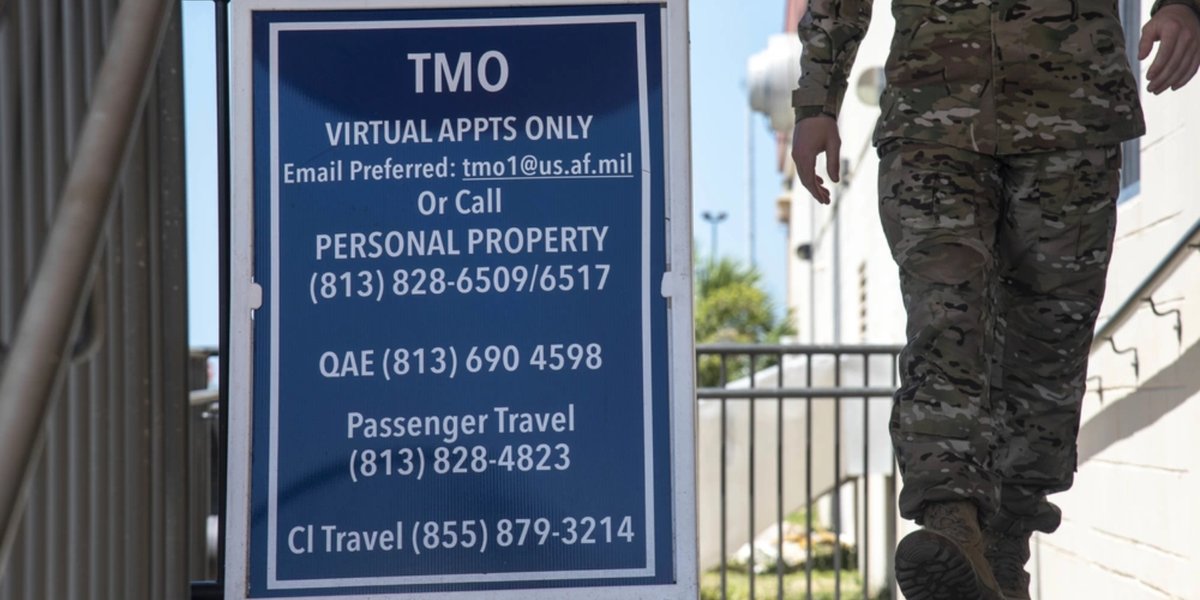YOUR MILITARY SEPARATION JUST GOT DELAYED: WHAT YOU NEED TO KNOW

You packed your boxes. You signed the lease on your new apartment. Your spouse accepted that job offer. Your military separation date was circled on the calendar for months.
And now — the government shutdown just changed everything.
Who's affected: Airmen, Guardians, and Soldiers with separation dates scheduled during the shutdown who haven't received official separation orders yet.
Air Force and Space Force Extend Service 60 Days
The Department of the Air Force is extending approximately 50 Airmen and Space Force Guardians for 60 days. Your separation date was scheduled for November. You haven't received official separation orders.
Now you're staying for another two months.
The extension offers flexibility. It reduces the chance of multiple extensions if the shutdown drags into the holidays.
Good news: If the government reopens before 60 days, you can request an earlier military separation date. You won't be stuck for the full extension.
Army Extends Soldiers' Separation Dates by 45 Days
The Army is extending Soldiers with upcoming separation dates by 45 days.
Army spokesman Major Travis Shaw explained the military separation delay prevents you from losing:
- Base access
- Housing
- Benefits
- Pay
- Travel reimbursement
- Household goods shipment
"The extension is for the soldiers' and their families' health and welfare," Shaw said.
What About Other Services?
As of early November 2025, the Navy, Marine Corps, and Coast Guard have not announced similar extensions for service members with upcoming separation dates.
This could change if the shutdown continues.
Why This Is Happening
The Antideficiency Act bars federal agencies from spending money during a government shutdown.
This law prevents the military from:
- Processing separation orders
- Covering costs related to separations
- Using furloughed civilian employees for administrative work
Many civilian personnel who handle military separation paperwork aren't working. Without these workers, the services can't complete the steps needed for you to leave.
One Air Force officer who managed to final out before the extension took effect described the challenges:
"I definitely did not have the checklist complete because no one was working at many of the offices on the checklist," the officer said. "But I think I got the actual 'required' items done. My understanding is that it's in AFPC's hands now, so hopefully they have everything they need."
This officer was fortunate to process out before the extensions began. Many others aren't as lucky. The extensions keep you on active duty. You continue receiving pay and benefits rather than being stuck in limbo without compensation.
This Isn't Stop-Loss
Some service members compared these extensions to the stop-loss policy used after 9/11. That policy kept personnel in uniform beyond their contract end dates due to a national emergency.
This situation is different. You're being extended for administrative reasons, not operational requirements. The goal is to protect your access to military separation pay and benefits during a government crisis.
What This Means for You and Your Family
Your Pay Continues
You will receive your regular paycheck throughout the extension period. Your separation pay military benefits remain intact.
Your health care through military treatment facilities stays active. TRICARE coverage is unaffected if you use civilian providers.
Your Timeline Just Shifted
Every plan you made based on your separation date needs adjustment.
Let's say your separation date was November 15. Your new date would be:
- December 30 (45-day Army extension)
- January 14 (60-day Air Force extension)
That affects:
- Employment start dates
- Housing moves
- School enrollments
- Spouse employment
- Final out-processing appointments
Your Family Faces Uncertainty
Your spouse may need to renegotiate their job start date. Many civilian employers understand that government shutdowns affect military families. But these conversations create stress.
You might face financial penalties for breaking a lease or complications if you can't take possession of a new home on schedule. Your household goods shipment is likely delayed. Your family could be without essential items.
Children who were supposed to start at a new school will miss the beginning of classes. This disrupts their education, making adjustment harder.
What You Can Do Right Now
Contact Everyone Affected
Reach out to:
- Your new employer (if you have a job lined up)
- Your landlord or real estate agent
- Your children's schools
- Your spouse's employer
Explain that the government shutdown caused a military separation delay beyond your control. Many employers and landlords have experience working with military families during government disruptions.
Get Answers About Your Situation
Your installation's personnel office can answer questions about your specific situation.
Contact information:
- Air Force Personnel Center
- Army personnel offices: Contact your local installation
Monitor for Updates
The shutdown could end at any time. When it does, you may separate sooner than the extended date.
Monitor official channels from your service for updates.
Find Financial Support If Needed
Does this delay create financial hardship for your family?
Resources are available:
- Service relief societies offer interest-free loans (check eligibility requirements)
- Many military-friendly banks provide zero-interest loans during shutdowns
- Your installation's family support center can connect you with assistance
Document Your Expenses
Keep records of all communications and expenses related to the military separation delay.
If you incur costs because of the extended timeline, you want documentation. Reimbursement may become available later.
What If the Shutdown Lasts Longer Than the Extension?
This is a valid concern. The services chose 45-60 day extensions to avoid the holidays. They also wanted to reduce the chance of needing multiple extensions.
If the shutdown continues beyond your extension period, you'll likely receive updated guidance from your service.
Stay connected with your chain of command.
Moving Forward
Government shutdowns create uncertainty for military families. You can't control when Congress reaches a budget agreement.
You can control how you respond.
Start by contacting everyone affected by your delayed military separation. Communicate the change. Ask for flexibility. Keep your chain of command informed.
Have you checked whether your new employer offers military-friendly policies? Many companies provide additional flexibility for veterans transitioning from service.
You served your country honorably. This unexpected extension doesn't change that. Your military separation will happen. The timeline shifted, but your next chapter is still coming.
Stay focused on what you can control. Maintain your professionalism. Support your family through the uncertainty.
Your transition is delayed. Not cancelled.
Suggested reads:
Join the Conversation
Gayleen Swiggum
Veteran & Military Family Life Writer at MyBaseGuide
Gayleen Swiggum is an Air Force veteran, military spouse, and lifelong military kid who has experienced military life from nearly every perspective. Gayleen holds a Master of Science degree in Logisti...
Gayleen Swiggum is an Air Force veteran, military spouse, and lifelong military kid who has experienced military life from nearly every perspective. Gayleen holds a Master of Science degree in Logisti...
Credentials
- Air Force Veteran
- Military Spouse
- Lifelong Military Kid
Expertise
- Military Family Life
- Logistics Management
- Supply Chain Management
SHARE:



